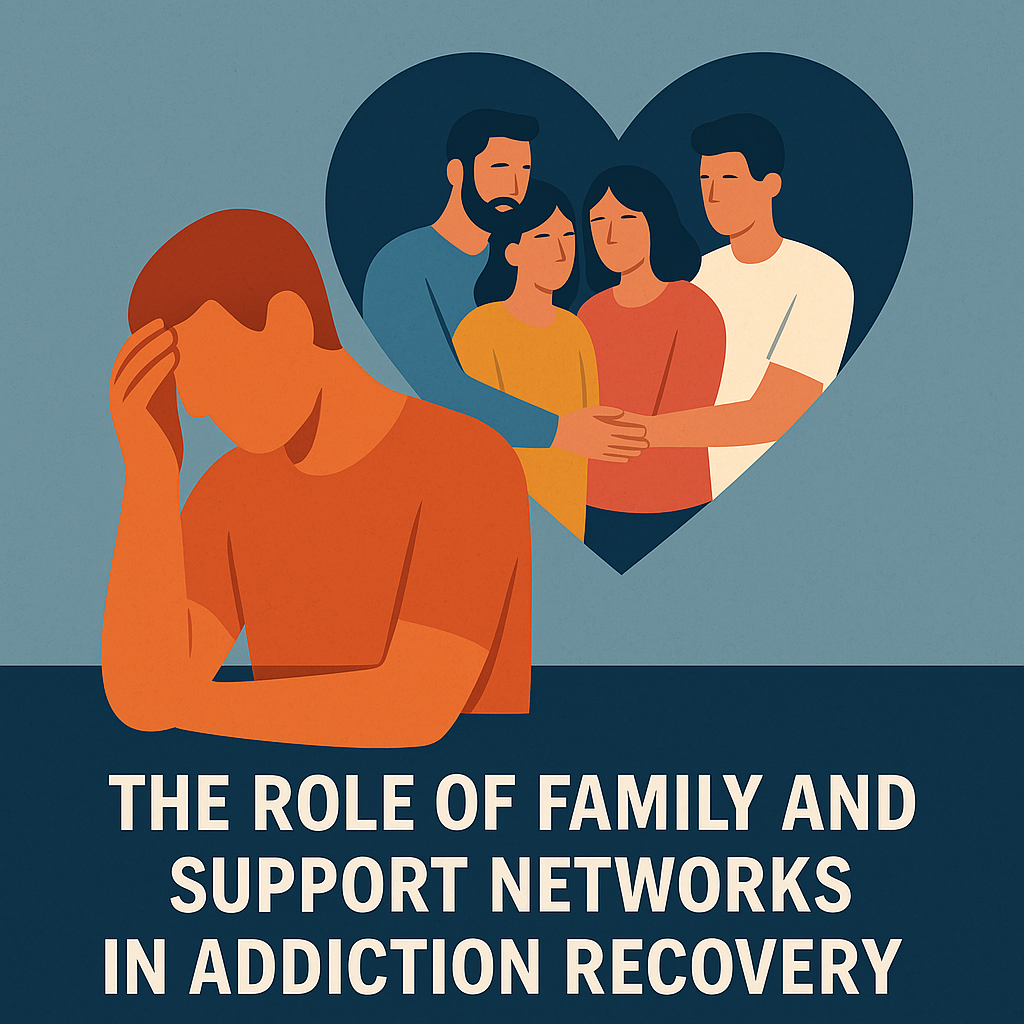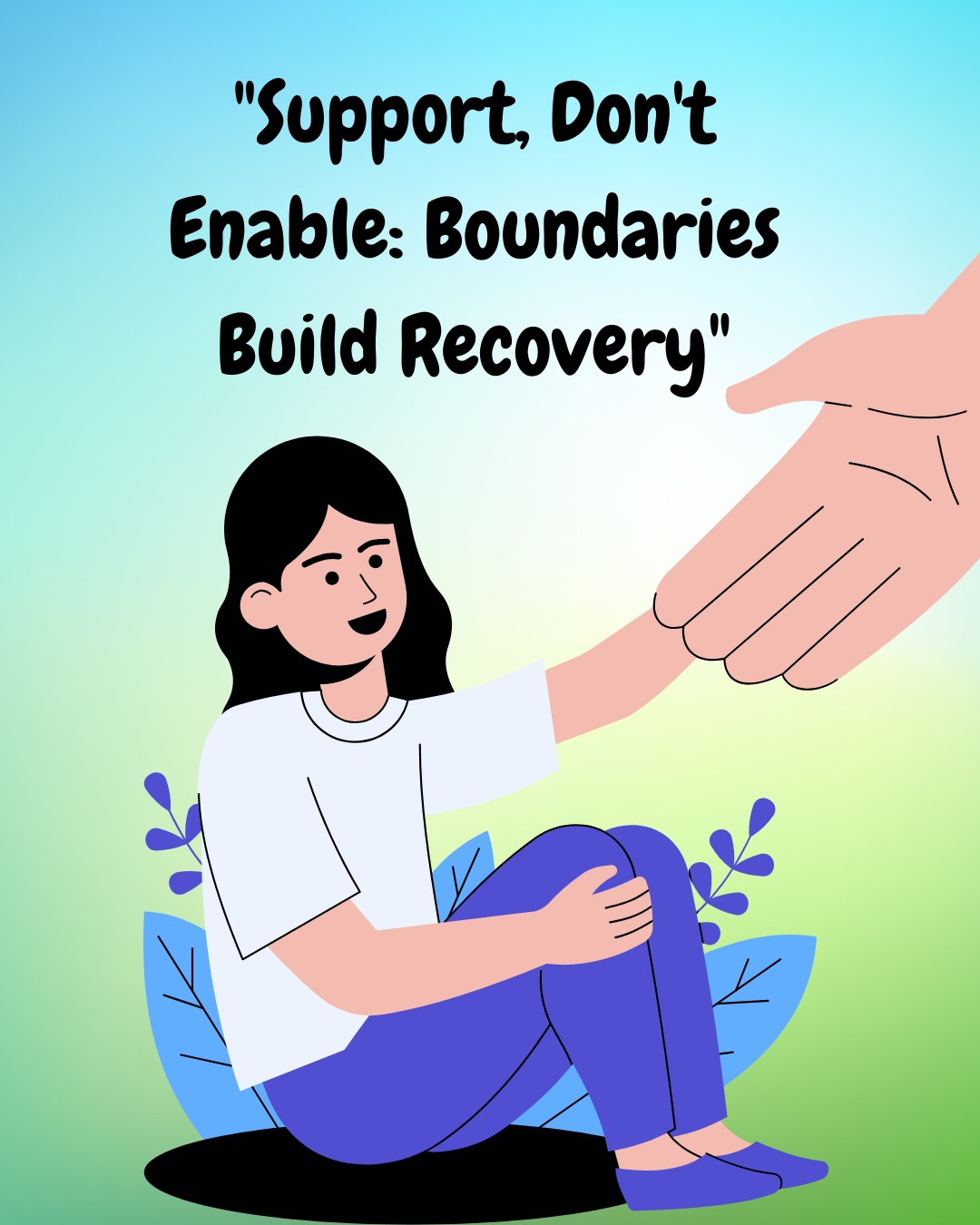The Role of Family and Support Networks in Addiction Recovery
Addiction is a complex and challenging journey that not only affects the individual but also their loved ones. For those in recovery, the role of family and support networks is vital in promoting long-term success and emotional stability. A strong support system can provide the encouragement, understanding, and resources needed to heal, while also helping to navigate the many ups and downs of the recovery process.
However, while family and friends play a critical role in addiction recovery, it’s equally important to understand how to offer support in a way that fosters growth and healing without enabling the addiction. Here, we explore the importance of family dynamics in recovery and provide strategies for how families can support their loved ones while maintaining healthy boundaries.
The Impact of Family Dynamics on Recovery
Addiction often causes significant strain on family relationships. The trust between loved ones may be broken, and feelings of betrayal, anger, and hurt can linger. However, family members can also play a vital role in the healing process. When they understand the nature of addiction and the challenges of recovery, they can provide a solid foundation of love, encouragement, and accountability.
Research shows that family support can greatly improve the chances of recovery. According to the National Institute on Drug Abuse (NIDA), individuals who have supportive family and social networks are more likely to remain sober and avoid relapse. The positive reinforcement from family members can serve as a motivating force to stay committed to recovery.
Family members can offer emotional support, provide stability, and create an environment that encourages openness and growth. But it's important to recognize that supporting someone in recovery requires understanding, patience, and a willingness to foster an environment of healthy communication and boundaries.
National Institute on Drug Abuse. (2018). Treatment and Recovery. https://www.drugabuse.gov/publications/drugs-brains-behavior-science-addiction/treatment-recovery
Avoiding Enabling: The Importance of Setting Boundaries
Supporting a loved one with addiction requires a balance between compassion and accountability. While it is natural to want to help, enabling occurs when actions unintentionally shield them from the consequences of their behavior, which can prolong the addiction cycle.
Signs of Enabling:
Making excuses for their behavior to avoid conflict.
Covering financial obligations, such as paying rent or debts.
Lying or covering up mistakes to protect them from consequences.
Ignoring or rationalizing their destructive actions.
While these behaviors may seem helpful in the short term, they prevent the individual from facing their reality. Support, in contrast, means encouraging accountability while offering emotional reassurance.
How to Set Healthy Boundaries
Boundaries are essential for both your well-being and your loved one’s recovery.
Healthy boundaries include:
Not providing financial aid for consequences related to substance use.
Refusing to lie or cover up for their mistakes.
Communicating expectations about behavior in shared spaces (e.g., no substance use at home).
Encouraging self-sufficiency by allowing them to take responsibility for their actions.
Communication Techniques for Supportive Interaction
Effective communication helps strengthen relationships and fosters trust in recovery. Using mindful communication strategies can create an environment where your loved one feels understood and encouraged.
1. Use "I" Statements:
Instead of making accusatory statements, reframe concerns using "I" statements to avoid blame.
Example: "I feel worried when I see you struggling," instead of "You always mess things up."
2. Encourage Open Dialogue:
Allow them to share their thoughts without interruption.
Validate their emotions rather than dismissing them.
Foster trust by responding with empathy.
3. Stay Calm and Non-Confrontational:
Avoid yelling, blaming, or using judgmental language.
Approach conversations with patience, even if they become defensive.
De-escalate tension by expressing concern rather than criticism.
Encouraging Participation in Therapy and Support Groups
Addiction recovery is more successful with professional support. Encouraging therapy and peer support groups can provide your loved one with essential tools for long-term recovery.
1. Support Their Therapy Efforts:
Express encouragement about attending therapy.
Ask about their progress in a non-intrusive way.
Avoid pressuring them, but remind them that seeking help is a sign of strength.
2. Participate in Family Therapy:
Many rehab programs offer family therapy to address strained relationships.
Learning effective communication strategies together can improve family dynamics.
These sessions help family members understand addiction and recovery from a professional perspective.
3. Recommend Peer Support Groups:
Programs like Alcoholics Anonymous (AA), Narcotics Anonymous (NA), or SMART Recovery offer peer support and accountability. Suggesting these groups provides them with a network of individuals facing similar struggles.
Self-Care for Family Members
Supporting a loved one in recovery is emotionally taxing, making self-care essential. You cannot provide effective support if you are mentally and physically exhausted.
1. Set Personal Boundaries:
Recognize that you cannot "fix" your loved one’s addiction.
Avoid neglecting your own needs while trying to help them.
Make time for your own personal growth and well-being.
2. Seek Support for Yourself:
Family support groups like Al-Anon or Nar-Anon provide guidance for those affected by a loved one’s addiction.
Individual therapy or counseling can help process the emotional burden of caregiving.
3. Take Time for Yourself:
Engage in hobbies and activities that bring you joy.
Prioritize your physical health with exercise, sleep, and proper nutrition.
Lean on other family members, friends, or therapists for support.
By setting boundaries, communicating effectively, and prioritizing self-care, family members can provide true support without enabling harmful behaviors.
Conclusion
Addiction recovery is a journey that requires not just the individual’s commitment, but the collective support of their family and friends. By providing emotional support, setting healthy boundaries, and encouraging participation in therapy, families can help their loved ones build a foundation for lasting recovery. However, it's crucial for family members to practice self-care, communicate effectively, and avoid enabling behaviors that may hinder progress.
With patience, love, and proper guidance, families can play an instrumental role in helping their loved ones regain control of their lives, rebuild trust, and create a healthier future.
At Counseling in the Holler, LLC, we understand the complexities of addiction, family dynamics, and the emotional toll that caregiving can bring. Whether you're seeking guidance on setting boundaries, improving communication, or finding ways to support your loved one while protecting your own well-being, we’re here to help.
Reach out today to schedule an appointment or a free consultation to see if we’re the right fit for you. Let us walk alongside you on your path to mental wellness and recovery. Because healing isn’t just for the individual—it’s for the whole family.





